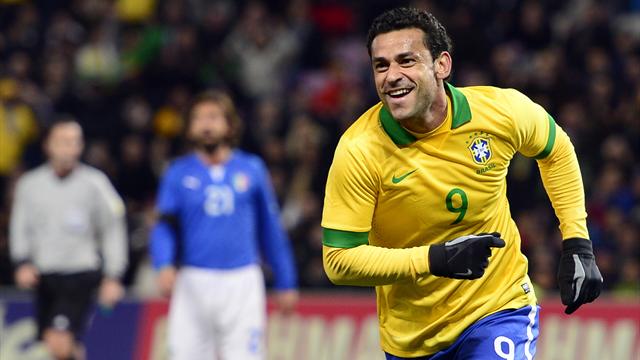On Botafogo's 20th Campeonato Carioca title, Rogério's pantomime villainy and the best of the rest...
Botafogo on the up
A well-taken goal from Rafael Marques (not that one) was enough to give Botafogo a 1-0 win against Fluminense in the final of the Taça Rio – a result that saw O Glorioso, who had already won the primeiro turno (the first stage of the championship), crowned champions of the Campeonato Carioca for the 20th time in their history.
They have undeniably been the standout side of the competition, impressing as much with their grit in the big matches as with their ability to overpower more modest opposition. The statistics tell the story: Sunday's victory ensured that Oswaldo de Oliveira's charges became the first side since 1997 to maintain a 100 per cent record during a whole phase of a Rio state championship campaign. This, even for one of the traditional big four, is no mean feat.
Boosted by the revelatory form of Nicolás Lodeiro, Clarence Seedorf's continued excellence and the lack of continental distractions (until the Copa Sul-Americana starts at least), Botafogo will certainly be in confident mood heading into the Série A season. An improvement upon their seventh-placed finish in 2012 looks likely.
Rogério vs Pato (part two)
It is fair to say that Rogério Ceni divides opinion like few others in the Brazilian game. Depending on your allegiances, he is either (a) a fiercely loyal competitor, still churning out era-defining performances in the twilight of his career, or (b) a snivelling, entitled elder statesman who should have retired a long time ago. The reality is somewhere between the two extremes, but few could deny the goalkeeper's penchant for box-office entertainment – be it through his saves, goals (yep) or increasingly frequent handling errors.
This weekend the veteran resumed a running feud with Alexandre Pato. The two first clashed (quite literally) back in March, when Rogério conceded a penalty for a foul the striker in the São Paulo vs Corinthians clássico. The goalkeeper protested the decision ("Look at the replay! He could have broken my foot!") but it was to no avail as Pato converted to win the game for the Timão.
The two sides met again on Sunday evening with a place in the final of the Campeonato Paulista at stake. A dire goalless draw was livened up by the ensuing penalty shootout, the climax of which pitted Pato against Rogério once more. With Paulo Henrique Ganso and Luís Fabiano having missed their kicks, Pato just needed to score from 12 yards to put Corinthians through. He stepped up. Rogério saved.
The São Paulo captain launched into lunatic celebration, only to be brought back down to earth with a bump. He had advanced too far off his line; the kick was to be retaken. Replays showed the extent of the advantage Rogério had been trying to gain – when Pato made contact with the ball, he was over 2.5 metres off his line. Pato made no mistake at the second time of asking, sending the Timão fans at the Morumbi into raptures.
Meanwhile, on computers throughout Brazil, a million photoshopped images mocking Ceni were being whipped up. The old man did it again.
Clássicozzzzzzzzzzz
That match was not the first derby match to disappoint in this season's Paulistão. Here are a few other clássico results from this year: Santos 0-0 Corinthians, São Paulo 0-0 Palmeiras, Palmeiras 0-0 Santos. Every one of those games was an excellent excuse for a snooze.
Elsewhere...
(Deep breath, and...) Internacional beat Juventude on penalties to retain the Campeonato Gaúcho and earn Dunga his third trophy as a coach. Bahia and Vitória will play out a couple of Ba-Vi derbies to decide the destination of the Bahia state championship. Santa Cruz beat Sport 1-0 in the first leg of the Pernambucano final thanks to a goal from Dênis Marques, the owner of what is officially the worst haircut in human history. In Paraná, a Coritiba side featuring former Fenerbahçe playmaker Alex drew 2-2 with Atlético-PR in the first leg of their state championship decider.
(Your reward, for making it to the end of that last paragraph, is this moment of amusement from the São Paulo game. Emerson holds the ball in front of Thiago Carleto, who, to show how little he's worried, sorts out his fringe. Detail: Thiago Carleto doesn't have a fringe to sort out.)
A version of this article was published by the Guardian.
(Photo credits: (1) Bruno de Lima, (2) Marcos Ribolli.)










